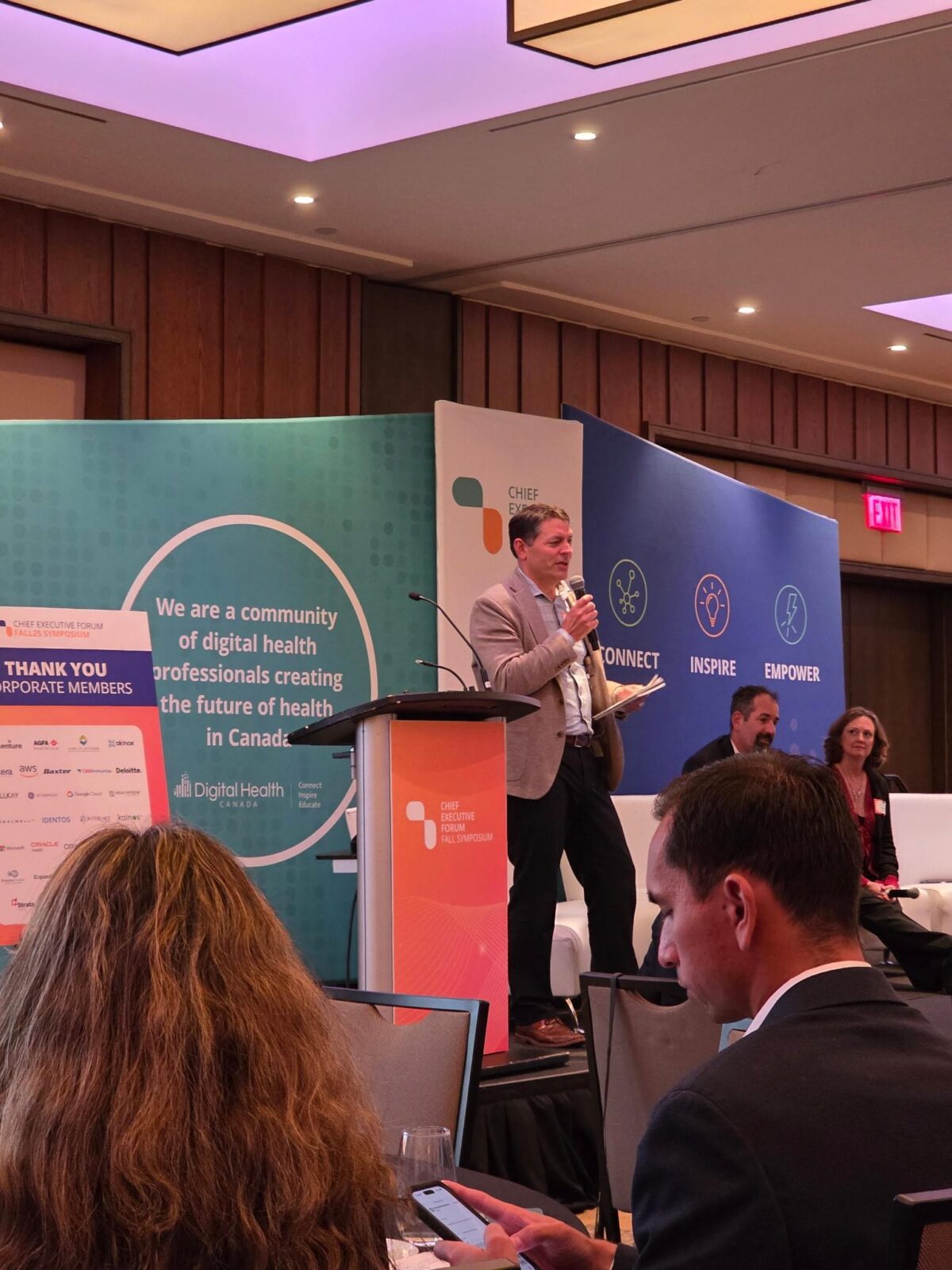Presenting Panelist at the Digital Health Canada CHIEF Forum

Digital Health Canada operates the CHIEF Forum — a place for senior professionals and leaders in digital health and healthcare to collaborate and exchange best practices and find answers to improve health and healthcare in Canada. The group involves members from private sector vendors and also from public sector jurisdictions. For Amplify Care this is a great fit, we have had productive relationships between governments, vendors and clinicians as part of our mission to be the leading trusted digital health partner for primary care and integrated health care.
This October’s Forum Agenda really focused on action (CHIEF-Fall25-program.pdf). I was asked to be a panelist introducing a Sticky Issue as an entry to a debate/discussion with interested attendees. I presented on “How to Grow Canada’s Digital Health Ecosystem without losing system cohesion?” My goal was to get as many people in the room as possible interested in and excited about finding solutions for this topic. Kyle Schilke, Principal Account Manager, AWS, and Dr. Laura Copeland, Chief Medical Information Officer from the Province of New Brunswick, spoke about procurement and education topics that people could choose to pursue.
My remarks focused on setting up a good discussion. I talked about three things:
- Sometimes, health system buyers use the term scaling to mean how a small project can grow to have many users when scaling in business is quite a different concept from growth. Growth typically means a linear increase in sales that is more closely matched with expenses when scaling is about increasing efficiency, and an exponential increase in profitability.
- Second, vendors/product owners may be initially interested in getting feedback from clinician users to get initial adoption, but may be less interested in changing the product later to help maintain users. When this happens, it clashes with change management research in healthcare that openly talks about the need for doctors to maintain confidence in the idea that the product owners are listening to them and working to meet the needs of daily use.
- Finally, I talked a little bit about the ongoing challenges in determining who is responsible for funding and doing what parts of the digital workplan for health. Canadian federalism and healthcare is a topic that continues to confound vendors, clinicians and governments. For me, we can always do better at discussing where clinical value is being created for patients, how organizations are making decisions on digital enablers, why system funders move forward with solutions (sometimes to support a larger system value as much as to help a clinical workflow?). Is there a path for people to work to each do their (complementary) part?
The conversations at the different tables that took on my topic were great, as was the feedback that came from the other topic tables. It was a good process of building shared understanding on what is needed to get some big things done for Canadian clinicians.
We’d love to hear from you as well — please feel free to get in touch below to start the conversation.
Get the latest resources and insights
-

Webinar on systematically reimagining administrative load in family practice
Sharing some tips, tricks, and key takeaways from our Ideal Primary Care Practice Model webinar,…
-

Fiscal year 21/22 eReferral highlights
eReferral deployment across Ontario, led by the Ontario eServices Program, resulted in a large degree…
-

eConsult and eReferral supporting the chronic pain pathway
One in five Canadians suffer from chronic pain1. Wait times for multidisciplinary chronic pain clinics…
-

Plain Language Description: Ocean eReferral to Cerebrum EMR
Amplify Care and AwareMD (a WELL Health Company) have partnered to allow healthcare clinicians to…